It’s the worst crisis, ever.
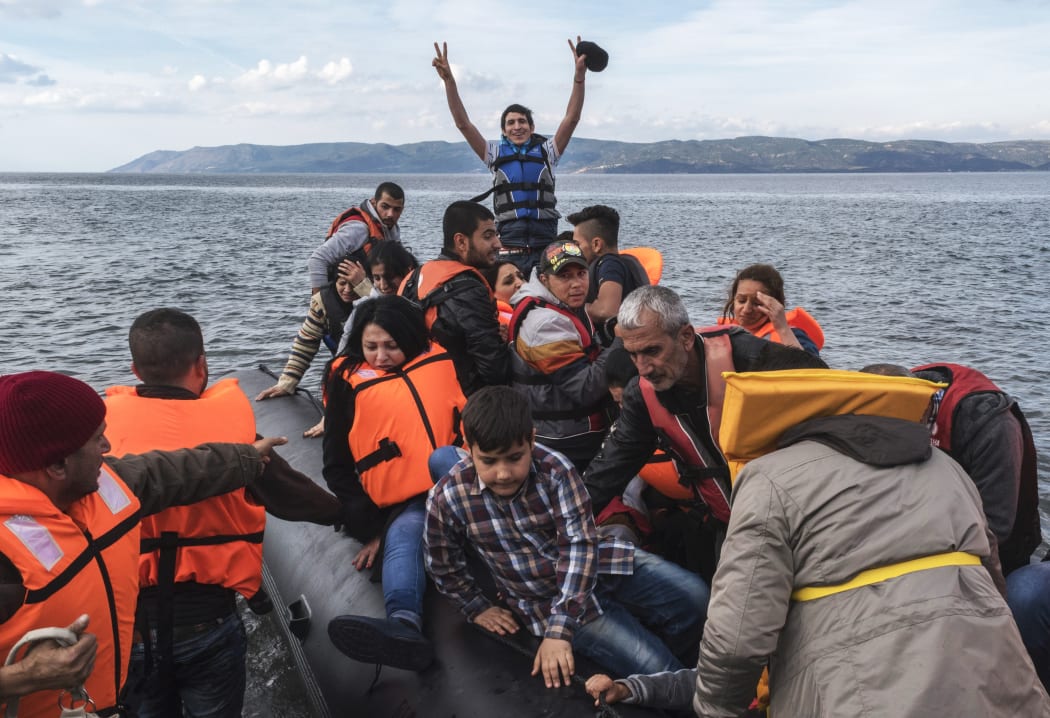
Syrian Refugees arrive on Lesbos island, Greece Photo: Wikimedia Commons
Helen Clark, former PM and head of the UN Development agency talks with Dr Gill Greer, CEO of Volunteer Service Abroad in a wide-ranging discussion recorded in front of an audience at Te Papa in Wellington.
“It’s the worst crisis, ever. Worse than the end of World War II.” Helen Clark is talking of the rise in scale of forced displacement, currently totalling over than 65 million people worldwide fleeing from conflict, persecution or famine. While agreeing that a fresh look at the New Zealand refugee quota is called for – it stands at 750 annually, unchanged for twenty years – Clark also calls for our support for communities at threat of displacement.
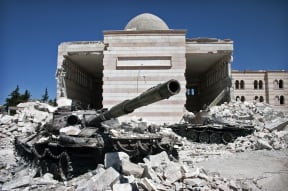
A mosque in Azaz, Syria Photo: Wikimedia Commons
She cites the example of Syria, where between 6 and 7 million (half the population) are displaced. “Everyone thinks about the refugees,” she says, “because there’s a lot of them: 4½ million. But at least they have an international convention and some protection.” However, that doesn’t apply to those still living in Syria, nor to those trying to get on with their lives in Yemen, Mali or South Sudan, where the needs are quite desperate, according to Clark.
During her time as head of the United Nation’s Development agency, Clark advocated that international donors invest in troubled countries while conflict was going on, rather than only deal with those who had fled their borders. She argued that it was important to support people to pursue their livelihoods, by getting their water hooked up again, the power connected, and the rubbish taken away.
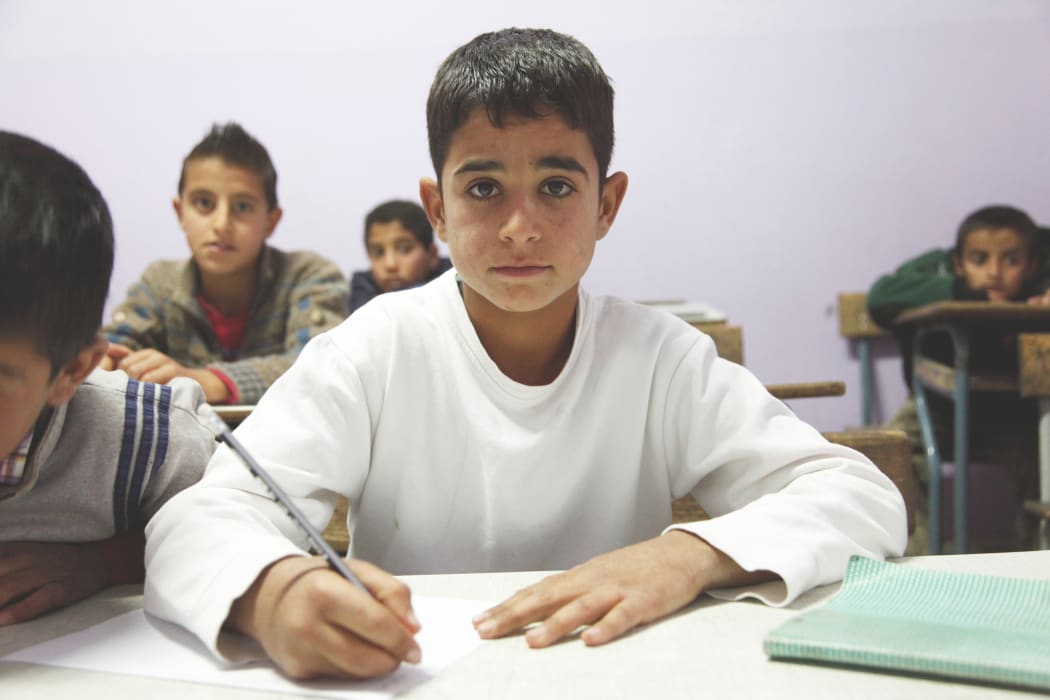
An 11-year old refugee from Syria at school in Lebanon Photo: Wikimedia Commons
Bomb sites needed to be cleared, children kept in school, and basic health services should still be provided. Why? “Because if you don’t do that, you add to the pressure to leave. Most people don’t want to leave their homeland unless everything else has failed.” Clark identifies lack of schooling as a key factor in the decision of those who uproot themselves for an uncertain future in a foreign land, concluding that “Anything we can do to support those who are trying to make it possible for people to be able to carry on their lives somehow in these desperate situations is incredibly important.”
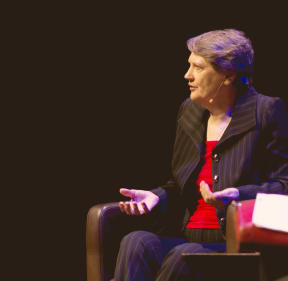
Helen Clark Photo: VSA/Rory Harden
A return visit to Mali in West Africa last year brought home to Clark the devastating effects of a coup and the secession which followed. Now, violence and terrorism strikes almost anywhere in the country. “So you are looking at a situation where there are very few positive opportunities for young people to work or finish their education.”
She recalls a very experienced older woman who headed of one of the UN agencies in Mali saying, “You’ve got to realise Helen, there’s not a lot positive for youth here. There’s a lot of negative opportunities. You can become a terrorist. A jihadist. And it pays a princely sum of money which you’d never meet trying to garden a dusty plot. You can become any kind of ordinary criminal trafficking people drugs or weapons. And then there’s the option of trying to hike your way up to the Libyan border and making your way across the Mediterranean where of course the death toll is rather high.”
Those sobering comments had their counterpart in a later meeting with youth non-government organisations on the same visit. Then she was told that the desire of most young people was to not take up the offer of the “bad guys,” but instead to pursue education, find jobs, and take up a constructive place in society.
Clark concludes that a huge focus on youth issues is needed by developing countries. They could, she says, reap a big demographic reward from this large section of their populations, but only if they invest in young people. “If that doesn’t happen, we’re not looking at a dividend, we’re looking at a nightmare.”
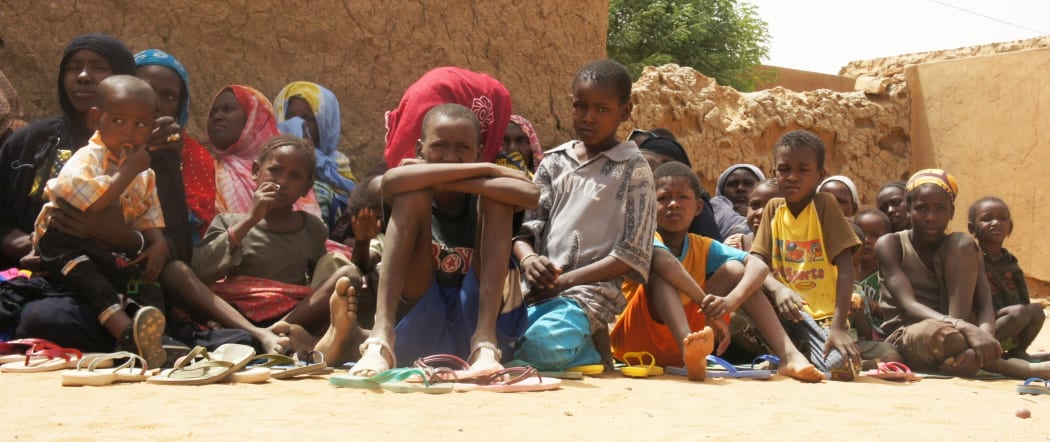
Displaced women and children in Mali Photo: Wikimedia Commons
This RNZ recording was made in Soundings Theatre, Te Papa, in partnership with Volunteer Service Abroad.

VSA logo Photo: VSA

